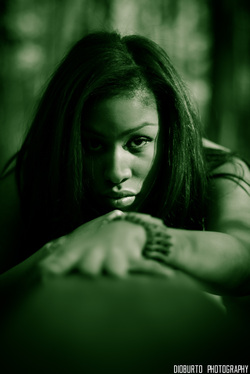 Loud. Brash. Angry. Aggressive. Ratchet. Hoe. Gold Digger. In the past month, I have read articles in newspapers and magazines all using these words to describe black women. These adjectives are commonly used to describe women who look like me, and yet I have no connection to them. They don't resonate with me at all. I suppose it is possible that I am just not self- aware enough to see myself in those words, but I have had enough 360 degree feedback in my life to guess that is not the case. People love to speculate about why black women can't find domestic bliss (the statistics tell us that 50% of black women never marry and we know statistics don't lie.) The media is full examples of black men marrying anything they can get their hands on other than black women. Most of the time when there is a black man on television or in a movie his love interest is usually white, asian or latina. This perpretuates the idea that black women are less desriable than other women and black men are staying away from us in droves. What the media doesn't tell us, that the U.S. Census Bureau is happy to inform, is that black men marry black women almost 80% of the time. But, let's not get confused with facts. Let's keep talking about why black women are alone, lonely and miserable. Loud. Brash. Angry. Aggressive. Ratchet. Hoe. Gold Digger. For the record, I am a happily single child-free black woman who hangs out with other black women I would describe as lively, professional, accomplished, sophisticated, caring and independent. Hmmm...quite the disconnect. There is an expression we use in Diversity Awareness training that goes something like " we all view the world through the lens of our own experience." I believe this is true. If I have a negative experience with one member of a group of people, it could taint my perception of the entire group. Or, if I am some how invested in my perception of a group of people because it makes me feel good, or feeds my ego, or asuages my guilt, I am going to look for evidence everywhere that my perception is valid. I think if most of us were honest with ourselves we would admit that this is the case. The problem, as I see it, is that when you are in a position of power or influence you have the ability to act on your biases and prejudices and influence other people. The people who control the images of black women that get shown in television, movies, videos, etc. are not black women. These individuals are de-selecting the women who represent the women I know, and they are actively selecting the women that feed into their image of who black women are. That is problematic in my opinion. But it also leads me to think about this: What influence do I have? What story am I telling the world about groups of people that I don't really know? How am I subtley (or maybe not so subtley) influencing the way my organization or colleagues view groups of people. Am I just slipping up when I refer to young men as "little boys" because it is a silly little habit I can't break. When I ask "What is the name of that little boy who works in finance"? Am I just using a harmless expression, or is that my passive aggressive way of communicating that I am in charge? Or, am I just so preoccupied with my own aging body that I think anyone younger than me is a "little boy" or a "little girl?" Jealous much? Whatever the reason, I should probably resolve to stop it. Inclusion 365 Mission #4 I will remember that the words I use to describe groups of people can not only project my biases, but could potentially influence the way those groups are viewed by others. I will judge people on their merits and not by my preconceived notions of who I think they are.
1 Comment
|
AuthorI am a Diversity practitioner wondering if it is possible to practice what I preach and live by the principles of diversity and inclusion everyday. Archives
May 2017
Categories
All
|
 RSS Feed
RSS Feed